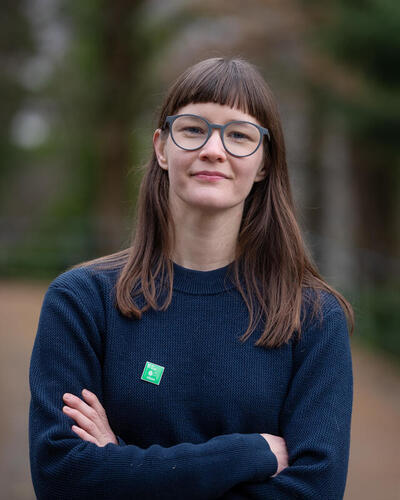ACTIONABLE - Adaptive Co-management to enhance biocultural diversity and sustainable development in coastal communities
PostDoc Alicia Donellan Barraclough received funding for her project ACTIONABLE from The Norwegian Research Council, under the theme "Areas under pressure". The project started in summer 2023. Read more about the project in Alicia's own words below.
Main content
What is the project about?
ACTIONABLE is a project that aims to translate the big global sustainability and biodiversity agendas and policies to local and regional coastal and marine realities. We aim to do this through a collaborative transdisciplinary approach that facilitates exchange and learning between local and global institutions and stakeholders. ACTIONABLE’s partners will work together to understand resilient and participatory management of coast and sea as enabled by round table institutions and sustainability designations in the coastal and marine areas of Nordhordland UNESCO Biosphere, Lofoten UNESCO Biosphere Proposed Candidate and Sápmi Finnmark. ACTIONABLE will consider the changing social and ecological realities of natures contributions to people and biocultural diversity in these three coastal regions in Norway
What made you apply for this call?
I really wanted to ask for a Samarbeidsprosjekt because I am very interested in collaborations across all sectors of society – I think this is where our science can really have impact and contribute to solving the great challenges of our day. So, I am very excited about the partnership between all the members on the project. We will be taking a “transdisciplinary approach” with good collaboration and societal impact as a core pillar of our work. This means we will follow a facilitated process of co-creation, where we will think together about the research case studies, and the different activities we will develop to implement the project in each of the regions participating.
What are some of the research questions of the project?
In the last years I have become very involved in research on Biosphere Reserves and similar designations which try and promote sustainability – conserving biodiversity and our landscapes while also facilitating good social and economic wellbeing. So, the project will take a very broad look at how these initiatives work (or don’t), in a very inter-disciplinary way combining the natural and the social sciences. Some parts of the project will look at how participation in environmental management, bridging institutions, and so called “adaptive co-management” can help sustainability initiatives. We will also be looking into conflicts over different land and sea uses along the coast, and how this affects biodiversity and ecosystem services, as well as biocultural values of the landscape. We will also think about how to monitor and measure the progress or success of these kind of ambitious sustainability initiatives like Biosphere Reserves.
What do you hope are some outcomes of the project?
I hope ACTIONABLE helps identify place-based approaches to coastal sustainability challenges, which are sensitive to local cultural realities, biocultural perspectives, and biodiversity. I hope our research can contribute to understanding sustainable management practices that support coastal identities and biodiversity. But mainly, I want one of the main outcomes to be the building of positive relationships between different stakeholders in each of the regions, and good learning experiences on achieving coastal sustainability between all involved in the project.
Anything you are particularly excited about?
The budget and the plan include lots of creative activities to explore our topic and help reach the broader public. For example, we plan an art residency associated to ACTIONABLE, which will be a collaboration with Bergen Ateliergruppe and other local artist groups in each of the regions we will work, we also have some plans to explore the themes through documentary and film-making, which some partners of the project already have experience with.
Details about the partners:
The project is a trans- and inter-disciplinary partnership between UiB (led by Alicia Barraclough with support of Inger Måren UNESCO Chair on Sustainable Heritage and Environmental Management, and Peter Manning from the Centre for Sustainable Area Management (CeSAM), LoVe utvikling (Ørjan Arntzen), Nordhordland UNESCO Biosfære (Kari E Natland), SAMAS (Mikkel Nils Mikkelsen Sara), SINTEF (Dorothy Dankel) and University of Saskatchewan in Canada (Maureen Reed), as well as many other collaborators and advisors from key institutions in Norway and abroad.
Details about the project:
The project will start up during the summer 2023 and we will hire a PhD student to be supervised at BIO and who will be affiliated to CeSAM, who will focus be focusing on the biodiversity and ecosystem service trade-offs of different uses of the coast.
